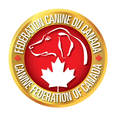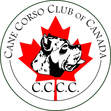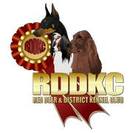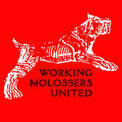The Myth (and often outright deception) of "Champion Lines"
By Joanna Kimball
One of the cardinal ways to recognize a breeder who is what we in the show-breeding world would call less than reputable is that they will talk about “Champion lines” or “Championship pedigree.”
Here’s why this is such a bad sign:
- It means absolutely nothing when it comes to the quality of the dog. Most of the offspring of a champion dog are not good enough to warrant breeding; the possibility of genuinely breeding-quality dogs becomes even more remote when the champion relative is a grandparent or great-grandparent. THAT IS WHY GOOD BREEDERS NEVER USE THIS TERM. We would never think of one champion grandparent as being something to brag about. Neither should you.
- It shows that the breeder knows enough that they realize that successful show dogs make the best producers of pet dogs, but that they don’t want to put in the effort, time, and money (and passion) to prove their OWN dogs in the show ring. It’s very common for that type of breeder, when pushed, to say that avoiding the show ring is a virtue, that they don’t want to “stress” their dogs by showing them. But then why do they brag that the owners of their dog’s grandparents did so?
- Very often the price of the puppies goes up according to how many champions are in the pedigree, as though that makes the dog worth more. You should realize that buying a pet puppy from a good show breeder, and getting a pedigree that is entirely champions and not only champions but nationally ranked dogs, Westminster winners, “household names” in dogdom, is often cheaper than buying from those breeders. I don’t care how much glory is attached to a breeding anyone does; the number-one bitch bred to the number-one dog is still going to have a bunch of pet puppies in the litter. And you can AND SHOULD be insisting on THAT level of quality in the breeder. There is absolutely no reason that you cannot, as a pet person, approach a top breeder. In fact, you should start there as a default.
(How to find one? Every breed club’s website has the results of its national specialties for the year. Look at two or three years’ results. Nationals move around the country, so you can’t get a good picture from just looking at one. Notice which kennel names seem to come up often, not just on the class dogs or champions but as names on the parents of those dogs. My kennel name will NOT be one :). When you contact one of those ten or fifteen breeders, I hope that perhaps one or more of them will refer a pet buyer to me, but I do not expect to be a starting place.)
- That dog in a cage at the shelter has just as many champion ancestors as the average careless breeder’s dogs do.
If you want a poorly bred dog, go rescue one. Please. And DO recognize that the words “champion lines” on a website or ad is a HUGE red flag and should encourage you to run away.
Borrowed from "Ruffly Speaking"
Here’s why this is such a bad sign:
- It means absolutely nothing when it comes to the quality of the dog. Most of the offspring of a champion dog are not good enough to warrant breeding; the possibility of genuinely breeding-quality dogs becomes even more remote when the champion relative is a grandparent or great-grandparent. THAT IS WHY GOOD BREEDERS NEVER USE THIS TERM. We would never think of one champion grandparent as being something to brag about. Neither should you.
- It shows that the breeder knows enough that they realize that successful show dogs make the best producers of pet dogs, but that they don’t want to put in the effort, time, and money (and passion) to prove their OWN dogs in the show ring. It’s very common for that type of breeder, when pushed, to say that avoiding the show ring is a virtue, that they don’t want to “stress” their dogs by showing them. But then why do they brag that the owners of their dog’s grandparents did so?
- Very often the price of the puppies goes up according to how many champions are in the pedigree, as though that makes the dog worth more. You should realize that buying a pet puppy from a good show breeder, and getting a pedigree that is entirely champions and not only champions but nationally ranked dogs, Westminster winners, “household names” in dogdom, is often cheaper than buying from those breeders. I don’t care how much glory is attached to a breeding anyone does; the number-one bitch bred to the number-one dog is still going to have a bunch of pet puppies in the litter. And you can AND SHOULD be insisting on THAT level of quality in the breeder. There is absolutely no reason that you cannot, as a pet person, approach a top breeder. In fact, you should start there as a default.
(How to find one? Every breed club’s website has the results of its national specialties for the year. Look at two or three years’ results. Nationals move around the country, so you can’t get a good picture from just looking at one. Notice which kennel names seem to come up often, not just on the class dogs or champions but as names on the parents of those dogs. My kennel name will NOT be one :). When you contact one of those ten or fifteen breeders, I hope that perhaps one or more of them will refer a pet buyer to me, but I do not expect to be a starting place.)
- That dog in a cage at the shelter has just as many champion ancestors as the average careless breeder’s dogs do.
If you want a poorly bred dog, go rescue one. Please. And DO recognize that the words “champion lines” on a website or ad is a HUGE red flag and should encourage you to run away.
Borrowed from "Ruffly Speaking"





